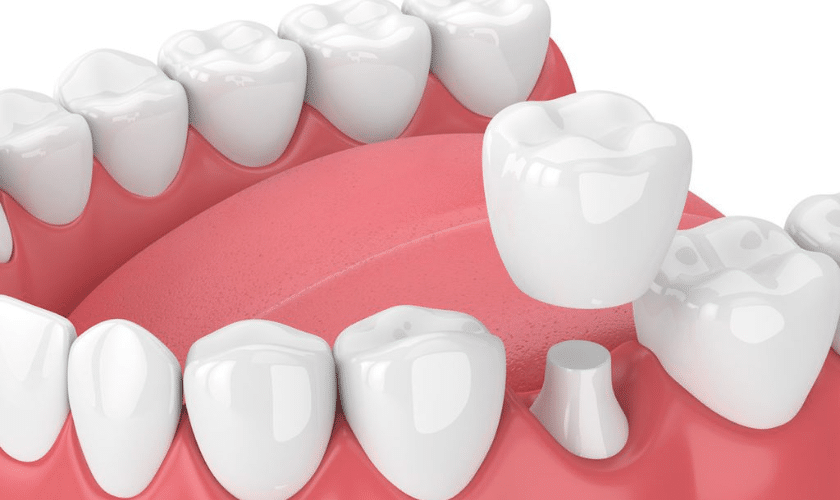How Should I Care for a New Dental Crown?
Congratulations on getting a new dental crown! Whether you’ve had one placed for cosmetic reasons, to strengthen a damaged tooth, or as part of a larger dental restoration, proper care is essential to ensure its longevity and maintain your oral health. Here, we’ll delve into comprehensive care strategies, common pitfalls to avoid, and the benefits of a well-maintained dental crown.
Understanding Dental Crowns
A dental crown is a cap that covers a damaged tooth, restoring its shape, size, strength, and appearance. Crowns can be made from various materials, including porcelain, ceramic, metal, and resin. Each material has its unique properties, but all require diligent care to keep them in good condition.
Immediate Post-Procedure Care
1. Manage Discomfort and Sensitivity
It’s normal to experience some sensitivity or discomfort after the placement of a new crown. This is often due to the tooth’s nerve reacting to the procedure. Over-the-counter pain relievers can help manage this discomfort. Avoid extremely hot or cold foods and beverages for a few days, as your tooth may be more sensitive to temperature changes.
2. Watch What You Eat
During the first 24-48 hours, avoid sticky, hard, or chewy foods that could dislodge or damage your new crown. Soft foods like mashed potatoes, yogurt, and soup are ideal. Gradually reintroduce other foods as you feel more comfortable.
3. Be Gentle with Your Crown
Treat your new crown with care, especially during the first few days. Avoid using that side of your mouth for chewing, and don’t clench or grind your teeth. If you habitually grind your teeth, talk to your dentist about getting a nightguard to protect your crown and other teeth.
Long-Term Care Tips
1. Maintain Excellent Oral Hygiene
Good oral hygiene is crucial to the longevity of your dental crown. Here are some tips to keep in mind:
- Brush Twice Daily: Use a soft-bristled toothbrush and fluoride toothpaste. Brush gently around the crown to avoid irritating your gums and damaging the crown.
- Floss Daily: Flossing helps remove plaque and food particles from between your teeth and around the crown. Use a floss threader or interdental brushes to clean around the crown effectively.
- Rinse with Mouthwash: Antibacterial mouthwash can help reduce plaque and prevent gum disease, which can affect the health of your crowned tooth.
2. Regular Dental Check-ups
Visit your dentist regularly for check-ups and cleanings. Your dentist will monitor the condition of your crown and ensure it’s functioning properly. Regular professional cleanings help remove plaque and tartar that can build up around the crown.
3. Avoid Damaging Habits
Certain habits can damage your crown and other teeth:
- Chewing Hard Objects: Avoid chewing on ice, pens, or fingernails, as this can crack or chip your crown.
- Using Teeth as Tools: Don’t use your teeth to open packages or bottles, as this can put undue stress on your crown and lead to damage.
- Teeth Grinding: If you grind your teeth, consider wearing a nightguard to protect your crown and prevent excessive wear.
4. Pay Attention to Your Diet
While crowns are durable, they’re not indestructible. Be mindful of your diet:
- Limit Sugary Foods and Drinks: Excess sugar can lead to decay around the base of your crown, compromising its integrity.
- Avoid Sticky Foods: Sticky candies and foods can pull on your crown, potentially dislodging it.
- Eat a Balanced Diet: Foods rich in vitamins and minerals help maintain your oral health and the integrity of your dental restorations.
Signs of Trouble
Even with the best care, issues can arise with dental crowns. Be aware of the following signs that may indicate a problem with your crown:
- Sensitivity or Pain: Persistent sensitivity or pain around the crowned tooth could indicate a problem such as decay under the crown or an ill-fitting crown.
- Loose Crown: If your crown feels loose or wobbly, it may need to be re-cemented or replaced.
- Cracks or Chips: Visible damage to your crown, such as cracks or chips, requires prompt attention from your dentist.
When to Contact Your Dentist
Don’t hesitate to contact your dentist if you experience any of the following:
- Persistent Discomfort: If sensitivity or pain doesn’t subside after a few days, it’s important to have your crown checked.
- Damaged Crown: Any visible damage to your crown should be addressed immediately to prevent further complications.
- Loose Crown: A loose crown can lead to further damage or decay if not properly secured.
Benefits of Proper Care
Caring for your dental crown properly offers numerous benefits:
- Longevity: Well-maintained crowns can last many years, saving you the time and expense of premature replacement.
- Oral Health: Good care of your crown contributes to overall oral health, preventing decay and gum disease.
- Aesthetics: Keeping your crown in good condition ensures that it continues to look natural and enhances your smile.
- Comfort: A well-maintained crown functions properly, allowing you to chew and speak comfortably.
A dental crown is a valuable investment in your oral health and appearance. By following these care tips, you can ensure that your crown remains in excellent condition for many years to come. Remember, your dentist is your partner in maintaining your dental health, so don’t hesitate to seek their advice or assistance if you have any concerns about your crown. With diligent care, your new dental crown will serve you well, providing both functional and aesthetic benefits.


